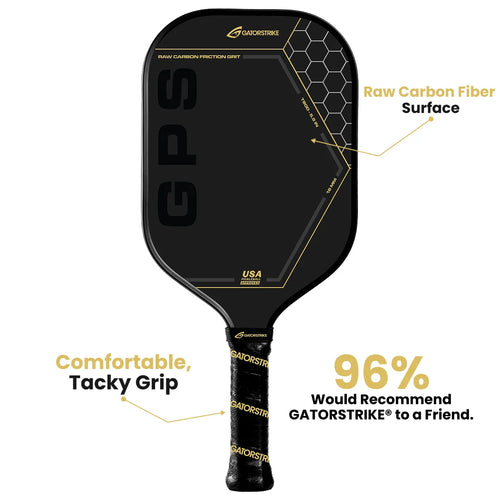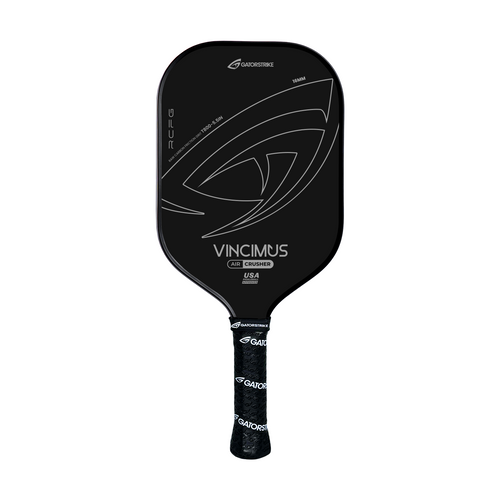
Pickleball Across Generations: How the Sport Bridges Age Gaps and Strengthens Bonds
Share
Pickleball is more than just a recreational pastime; it’s a multigenerational movement. With its unique blend of accessibility, strategy, and social interaction, the sport has evolved into a rare bridge that connects people of all ages. Unlike many traditional sports that naturally segregate by age or skill level, pickleball fosters inclusivity, bringing together grandparents, parents, and children on the same court.
Whether it’s a grandchild learning a drop shot from their grandfather or a senior keeping pace with a teenager’s quick reflexes, pickleball offers a dynamic and engaging way for generations to connect. But what makes this sport such a unifier? Let’s explore the key factors that make pickleball an intergenerational phenomenon.
1. Accessibility: A Sport for Every Age
Pickleball’s widespread appeal starts with its ease of entry. The game requires minimal equipment, has simple rules, and can be played at a pace that suits each participant’s ability level. The smaller court size compared to tennis minimizes excessive running, making it ideal for older players while still offering plenty of movement and challenge for younger competitors.
Key accessibility features that make pickleball a multigenerational favorite include:
- Lightweight paddles that reduce strain on the wrists and arms.
- A slower-moving ball that allows for better reaction time.
- An easy learning curve, allowing beginners to rally within minutes of starting.
These elements create a playing field where an 8-year-old can comfortably compete against a 70-year-old, making pickleball one of the few sports that genuinely cater to all ages.
2. Strengthening Family and Community Bonds
Few sports provide the opportunity for direct intergenerational play like pickleball does. Whether it’s a family doubles match or a friendly community tournament, the game encourages collaboration, communication, and shared experiences.
- Family Connections: Pickleball allows for unique family dynamics, where parents can bond with their kids over strategic plays, and grandparents can teach patience and control while learning new techniques from younger generations.
- Community Integration: Pickleball clubs and open-play sessions create a social melting pot where teens, adults, and retirees interact naturally, forming relationships that extend beyond the court.
- Mentorship and Learning: Older players often act as mentors, sharing their experience, patience, and tactical knowledge, while younger players bring energy and adaptability—creating an enriching exchange of skills and perspectives.
The sport fosters camaraderie, laughter, and friendly competition, reinforcing social ties in ways that few other activities can.
3. Life Lessons Through Play
Pickleball is more than just a game—it’s a teaching tool that imparts valuable life lessons. The sport naturally promotes essential skills such as patience, adaptability, and teamwork, which resonate beyond the court.
- For younger players: Playing alongside older competitors teaches sportsmanship, resilience, and respect for experience.
- For seniors: Competing with younger opponents encourages agility, keeps the mind sharp, and reinforces the importance of continuous learning.
Through these shared experiences, the game creates a deep-rooted sense of respect across generations, proving that learning is a lifelong process.
4. Pickleball as a Bridge in the Digital Age
In a world increasingly dominated by screens, pickleball provides a refreshing opportunity for face-to-face interaction. As younger generations become immersed in technology, many older players find it difficult to connect with them through traditional means. Pickleball serves as a bridge, offering a shared interest that transcends digital distractions.
Interestingly, the digital era has also influenced pickleball’s reach:
- Younger players introduce older family members to online pickleball communities, coaching videos, and virtual score tracking.
- Older generations provide real-world experience, wisdom, and strategic play insights that aren’t easily found online.
This exchange strengthens intergenerational bonds while keeping both groups engaged in meaningful ways.
5. Multigenerational Pickleball Events: Bringing Everyone Together
Recognizing the sport’s unique ability to unite different age groups, many communities now host special events designed for all generations. Popular formats include:
- Grandparent-Grandchild Tournaments, fostering teamwork across generations.
- Family Doubles Showdowns, where parents and kids partner up in friendly competition.
- Community Mixers, designed to integrate players from different backgrounds and ages into one cohesive social event.
These gatherings not only promote physical activity but also create lasting memories and stronger family and community bonds.
Conclusion: A Sport That Unites Generations
Pickleball isn’t just a game—it’s a unifying force that brings together people of all ages, bridging generational gaps and strengthening relationships. Its accessibility, emphasis on strategy, and social nature make it a rare sport where grandparents, parents, and children can engage on equal footing.
Whether you’re picking up a paddle for the first time or you’ve been playing for years, one thing is certain: pickleball offers more than just competition—it provides connection, camaraderie, and a shared passion that transcends age.
So, grab a paddle, invite your family and friends, and experience firsthand how pickleball can unite generations, one rally at a time.

















